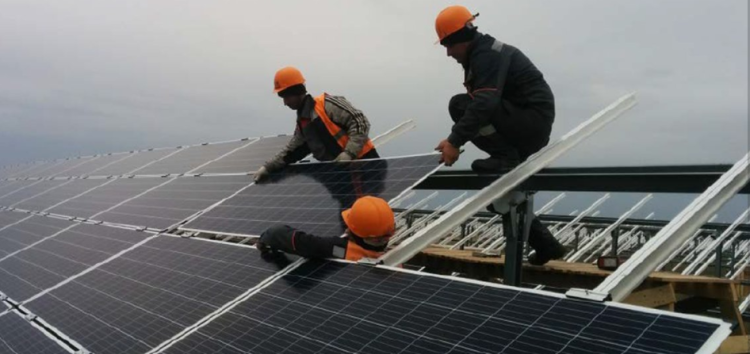Loan and project support agreements were signed between the stakeholders on November 28 in Kazakhstan’s capital city Astana. The EBRD will provide a local-currency loan equivalent to around US$51.3 million, while a loan of up to $22.2 million will be made available through the Green Climate Fund (GCF).
SES Saran LLP, a special purpose company incorporated in Kazakhstan and owned by the German-based group Joachim Holding GmbH, will implement the project, which runs under the auspices of the EBRD-GCF Kazakhstan Renewables Framework.
The programme funnels some $110 million into Kazakhstan to increase investments in renewable resources, provide technical assistance and build institutional capacity for energy integration.
Once complete, the 100 MW Saran solar plant will reportedly be Central Asia’s largest solar plant to have been built at one time. According to EBRD, it will reduce CO2 emissions by 93,500 tonnes per year and, thus, help the bank's Green Economy Transition strategy.
The plant is just the latest addition in a range of investments in Kazakhstan's renewable energy sector. United Green Energy Ltd and Kazakh Energy, for example, have also received similar support.
According to its a statement, the EBRD has invested over €7.5 billion across 246 projects in the economy of Kazakhstan, and a total of €26.7 billion in the Green Economy Transition since 2006.
Kazakhstan has been hailed as a promising candidate for the energy transition. Indeed, although it sources roughly 75% of its energy from coal, it is also around the same size as the EU and hosts a population as large as the Netherlands. In 2012, meanwhile, President Nursultan Nazarbayev unveiled a strategy to modernize the economy, by increasing the share of renewables progressively from 1% to 50% by 2050.
Kazakhstan has introduced fixed feed-in tariffs and multiple incentive schemes, like grid-access and tax exemptions in pursuit of realizing its goal. The country also hosted a World Expo under the theme “Future Energy” to set the tone for international investors.
Speaking to pv magazine in June, Luc Graré, CEO of Belgian-based developer Qway Energy, which has a subsidiary in the Kazakh capital Astana said, “In the World Bank’s Doing Business Index, Kazakhstan ranks 36 of 190 countries. Registering a company takes only three days. An international finance center with a British court system was introduced in Astana. You pay zero corporate and income tax.”
Qway developed a 350 MW portfolio of utility-scale solar PV projects in the southern provinces of Kazakhstan and is going to take part in auctions this year.
This content is protected by copyright and may not be reused. If you want to cooperate with us and would like to reuse some of our content, please contact: editors@pv-magazine.com.




By submitting this form you agree to pv magazine using your data for the purposes of publishing your comment.
Your personal data will only be disclosed or otherwise transmitted to third parties for the purposes of spam filtering or if this is necessary for technical maintenance of the website. Any other transfer to third parties will not take place unless this is justified on the basis of applicable data protection regulations or if pv magazine is legally obliged to do so.
You may revoke this consent at any time with effect for the future, in which case your personal data will be deleted immediately. Otherwise, your data will be deleted if pv magazine has processed your request or the purpose of data storage is fulfilled.
Further information on data privacy can be found in our Data Protection Policy.